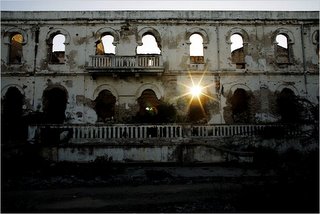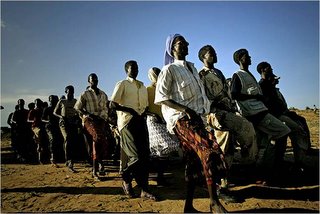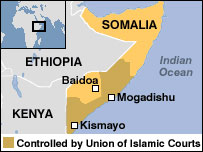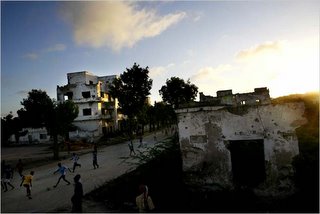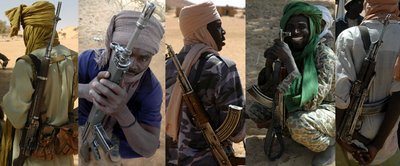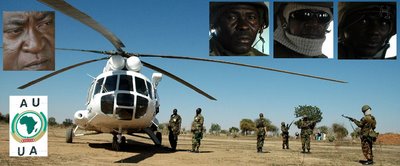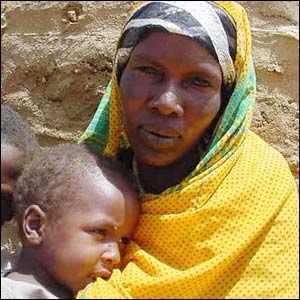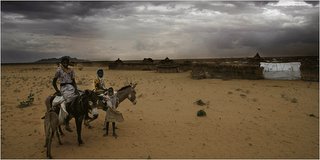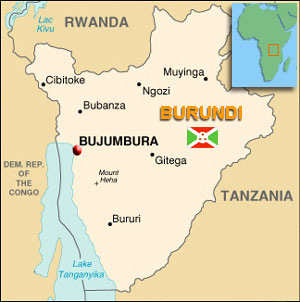
A lot is happening in Burundi these days. At least, recent events are offering some respite from the daily grind of poverty, joblessness, mind-numbing hunger, the pageantry of inept and paranoid politicians, a muzzled press... the list of untold joys goes on.
On the political front, an
unexpected truce was signed this morning in Dar es Salaam between the government and the last remaining rebel group, the Forces de liberation nationales or FNL. Brokered negotiations have often looked too tenuous to ever succeed, and with arrests and detentions of suspected 'coup plotters' and FNL sympathizers dramatically increasing in recent months, it seemed clear that the FNL was better off continuing its struggle than surrendering to a government that has lost all popular credibility since winning national elections in August 2005. All the new government's promises of restored security, free education for Burundi's children, a reinvigorated economy and good relations with international donors, particularly the IMF and the World Bank--not one of these has been realized.
Former President Ndayizeye was arrested on allegations of a recent
coup plot 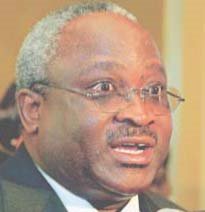
Inside the ruling party, the CNDD-FDD--which portrays itself as a popular movement addressing the needs of the poor--fissures of discontent are beginning to show, hopefully resulting in better governance for Burundians. On Monday, in a clear vote of no-confidence that initially frightened then emboldened my Burundian colleagues,
Vice-President Alice Nzomukunda resigned over corruption and human rights abuses that she claimed are hampering the nation's progress. The move was initially worrisome because of the 'sky is falling' reactions it triggered in this nation of hardened political skeptics. After the dust settled, however, political commentators and commoners alike were expressing support for the resignation as the first official recognition of the administration's illegitimacy.
Nzomukunda summarized her decision:
"My decision was motivated by numerous political problems which Burundian people are undergoing - problems of security, of not respecting the law, the management of state finances and of human rights laws which are violated. The country was on a good path to overcome all these problems, but corruption and economic embezzlement are undermining it," she said.
How the country is crumblingI'm presently working here on child rights violations committed by the government, its various bodies--particularly its forces of order--and by insurgent groups. The sheer quantity of documented violations boggles the mind, and are enough to declare the prospect of childhood in Burundi a lethal undertaking. If the man in blue isnt raping or killing the little folk, they're dying from diahrrea or a fever for lack of basic health care.
Independent experts appear to agree that Burundi is a tragic place. The
Happy Planet Index, published by the New Economics Foundation, an economics thinktank in the UK, recently rated Burundi 176 out of 178 of the world's (un)happiest countries. Zimbabwe and Swaziland took the last two spots.
Yet the country is ravaged in seemingly countless other ways, many of which are undocumented by the national press, local human rights bodies or their international equivalents. This week, however,
Human Rights Watch and the Burundian
Association pour la Protection des Droits Humains et des Personnes Détenues (APRODH) released a 75-page report, “
A High Price To Pay: The Detention of Poor Patients in Hospitals,” documenting how Burundian hospitals detain hundreds of indigent patients, sometimes in inhumane conditions.
Many of those detained are women giving birth who unexpectedly needed caesarian deliveries. In some cases, hospital authorities refused further medical care to those who could not pay their bills and forced them to vacate their beds for wealthier incoming patients. For an excellent slideshow of conditions in Burundi's abysmal health system, where indigent patients are detained until their accounts are settled,
click here.
 A young mother and her newborn baby, detained at Prince Louis Rwagasore Clinic in Bujumbura following a caesarean section.© 2006 Jehad Nga
A young mother and her newborn baby, detained at Prince Louis Rwagasore Clinic in Bujumbura following a caesarean section.© 2006 Jehad Nga
